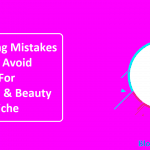When you plan start a blog, you may be in dilemma. Either the dilemma would be about which topic to write about or whether the topic you plan to write on will it be accepted openly.
May be your mind is teaming with ideas or it may be starving for ideas. Having said so, the next thing to know is whether there are any restrictions on how many topics that you write.
There is no as such restriction imposed. But then if you write on multiple varied topics, the specialisation advantage gets diluted and not all readers would be interested in all that you write.
Instead if you focus on some specific topic, the chances of getting greater number of interested visitors would be more. Basically, we are talking about specialisation in some area.
That’s where blogging niche comes into picture. It’s the central theme of your blog.
So, we come to the most important question that is how to choose a blogging niche for your new blog.
The key factors that contribute to the selection of a blogging niche are your interests, the future prospects in that niche or segment, the search traffic and your business interests.
The following guidelines will help you to identify niches and then slowly narrow down on the best suited niche area.
Contents In Page
1. Identify your interests:
List down all your areas of interest. Explore each interest area, break it down into sub areas and then narrow down to the specific area of your interest.
You may not be equally interested in all the areas, but still persist in listing them down. Your interests along with the sub-interest areas can be analogous to a big family tree diagram.
2. Categorise your interests:
Once you have the final list of interest areas ready, you need to classify these interests into categories
- Personal Passion but no popular demand
- No personal passion but popular demand
- Personal Passion with popular demand
By personal passion we mean how keen you would be in writing about that interest for over a year at frequent intervals of time. By popular demand we mean that there is there is a population interested in this topic.
In this way you can eliminate those interest areas or topics which you may not want to write about or those in which anyone is interested.
Instead select an active interest area which you are knowledgeable about and you passionately follow. This will ensure your commitment towards writing regular posts for your blog.
In this way you will be able to establish connection with your viewers. So bottom-line is select what you are best at and automatically traffic will follow to your blog.
This will definitely help you how to find a blogging niche for your new blog.
3. Generate more topic ideas:
Using the tool Google Keyword Planner, you can get more keywords under your broad shortlisted niche.
These keywords will help in further dissecting various aspects of the shortlisted niche. This in turn will help generate many more topic ideas.
4. Identify competition in the niche topic:
The more intense the competition by established blogs, lesser is the probability of your niche achieving success. The competition can be judged through a parameter called Domain Authority.
Higher the rank of this parameter for any site, the more difficult it is to compete with that site. So it is better to avoid such competitive niche topics. Select niches which have less competition but people might be interested in.
5. Look for developments envisaged in your shortlisted interest area:
Do not select a specific event based topic eg a specific time based political, cultural event where there is hardly a scope for elaboration after the occurrence of the event and you would be left with no matter to write about that would be related to it.
Go for evergreen topics where there is always scope to write about. So if there are any future prospects for the niche shortlisted, it makes sense to select such a topic.
6. Identify popularity of the topics:
You could evaluate the popularity over a period of time, of a shortlisted topic or the area of interest on Google Trends.
It is better to avoid starting a blog on a fading niche or on a topic whose popularity is short lived. It is better to have a consistent popularity. This should give you a fair idea to begin with.
7. Identify profitability of the topics:
For similar niche websites, check whether they display any advertisements, banner ads, cross links to other interested sites or promote sales of their own products.
This gives a fair idea about the potential money making capability of the niche. Alternatively, you could evaluate the profitability of a shortlisted topic or the area of interest on a tool named Keywords Everywhere.
It provides the keyword metrics wherever it is installed. You can measure the metric CPC (Cost per Click) to maintain a record of what advertisers pay for every niche topic.
8. Check for Affiliate marketing trend:
Amazon supports affiliate marketing wherein it pays users for referring potential customers to its website. So by checking out on similar niche sites you can determine whether there is any money making potential.
This can then help to decide on a later day whether your niche could also promote some products and eventually earn some money in the process.
Final Thoughts:
So, we hope the above article provides you the all the relevant information on how to choose a blogging niche for your new blog. Once you have managed to identify a blog niche you can commence working.
Initiate host account, install WordPress and then choose your blog theme. Perform research on the viewers that you plan to target by identifying the key issues they face and what would they expect of a similar niche.
Once you know the pulse of the viewers, it becomes easier to create quality content. At frequent intervals you can create content that addresses the issues that they are facing. This then builds up the connection with viewers.








